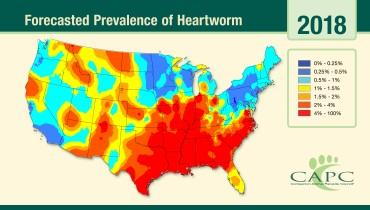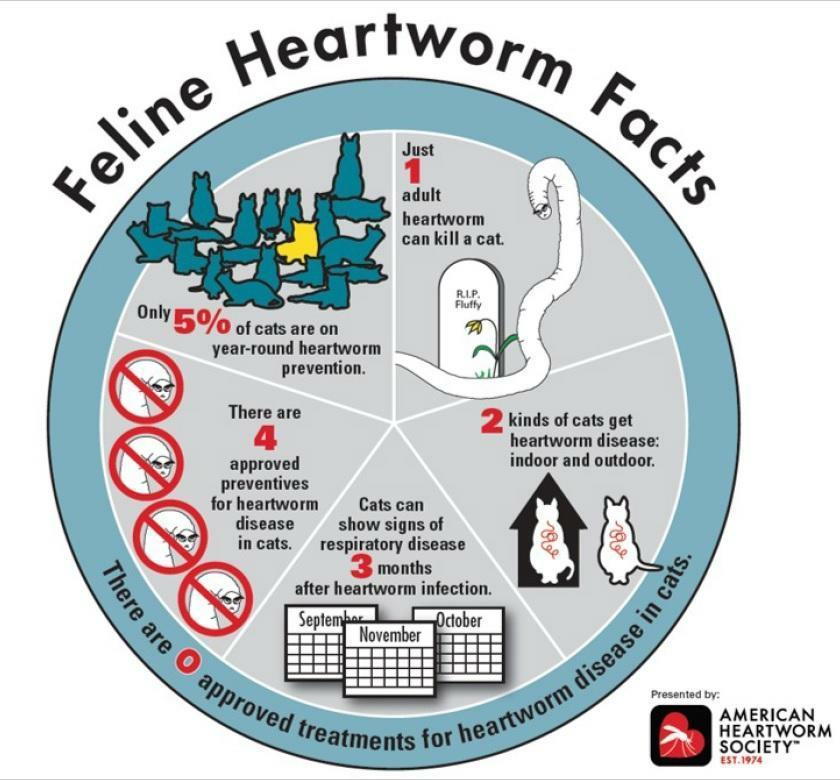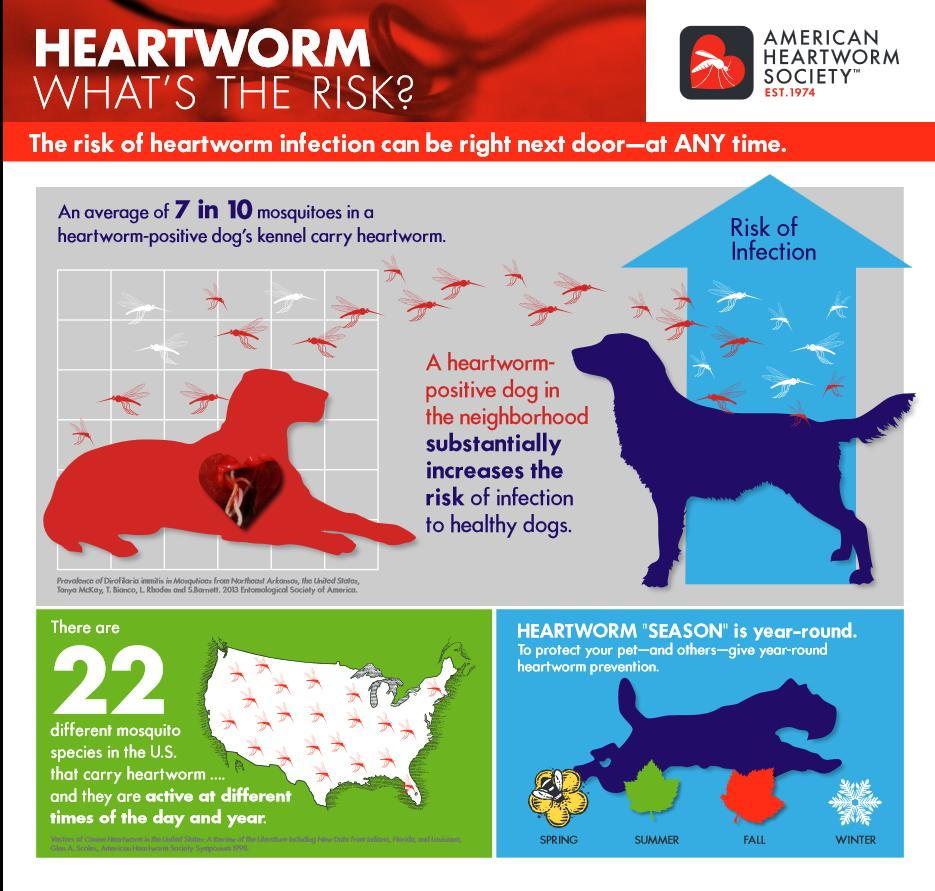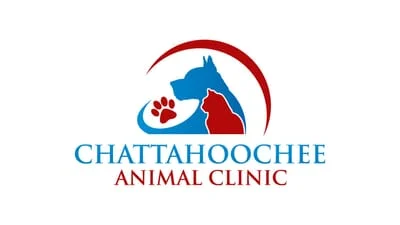Chattahoochee animal clinic monthly specials

- posted: Mar. 28, 2019
The weather is getting warmer here in Georgia, and we have seen more rain this year than in many years past. What does this mean to your canine companions? Heartworms! How does our faithful friend contract heartworms? They are transmitted through mosquitoes! Let’s talk about heartworms…..
We all hate the buzzing in our ears and the bites we get in the spring, summer and fall, and even winter, especially here in Roswell, GA. We slap at the mosquitoes and use repellent to be sure we are comfortable at evening bonfires or lake trips on the weekends. Those mosquitoes are a nuisance for us but can be deadly for our unprotected pets. A mosquito feeds on blood which carries the larvae and spreads to other dogs through a bite on the next dog. If your pet is on preventative, that’s the end of the line for that larvae. If your pet is not protected then the larvae (of the heartworm) is permitted to continue to progress to an adult within the susceptible dog. This process takes about 6 months. The adult heartworm resides in the pulmonary artery of the heart and causes inflammation and damage at that site until it either is killed with heartworm treatment or dies on it’s own (may take years!)
 What about my indoor pets, including my cats? Are they in danger? Yes! They are also vulnerable as some mosquitoes prefer to live inside and spread this fatal disease. It only takes ONE mosquito to cause a huge problem. Cats AND dogs are susceptible to heartworms, and all cats and dogs should be on preventative for their own protection. Being indoors is not enough to be sure our pets do not contract heartworm disease.
What about my indoor pets, including my cats? Are they in danger? Yes! They are also vulnerable as some mosquitoes prefer to live inside and spread this fatal disease. It only takes ONE mosquito to cause a huge problem. Cats AND dogs are susceptible to heartworms, and all cats and dogs should be on preventative for their own protection. Being indoors is not enough to be sure our pets do not contract heartworm disease.
How can I tell my dog is infected? Many times, there are not any clinical signs that your dog is sick. Occasionally, you may hear a cough or notice that your pet tires more easily. That is because of the inflammation and damage that is occurring in the pulmonary artery adjacent to the heart. This damage is for life and unless treated early in the disease can have larger repercussions later in life as well. We can test your dog with a blood test to know if they are infected. Can I tell my cat has heartworms? Cats are even better at hiding heartworm disease and we find that anything from a mild cough to sudden death can alert us to the fact that our cat has heartworms. That makes it imperative that our cats receive prevention monthly and all year round.
 What can you do? Prevention is key! Our recommendation is heartworm prevention all year round. The cost of heartworm treatment far exceeds the cost of prevention. There currently is not a treatment for heartworms in cats, which means they are especially vulnerable and why prevention is absolutely imperative to keeping them happy and healthy.
What can you do? Prevention is key! Our recommendation is heartworm prevention all year round. The cost of heartworm treatment far exceeds the cost of prevention. There currently is not a treatment for heartworms in cats, which means they are especially vulnerable and why prevention is absolutely imperative to keeping them happy and healthy.
For cats that Revolution® applied every 30 day on the nape of the neck is an easy way to not only prevent heartworm disease, but also fleas, ticks and intestinal parasites. For dogs we have a few options. For those that may not be mindful of a monthly dose, Proheart® Injection works well. This is an injection administered every 6 months to continually protect the dog from heartworms. We also offer Heartgard® as an oral chew preventative that is easy to administer and protects continually on a monthly basis.
So now you know why we discuss prevention at every visit and why it must be given year-round. You also know now why there is not a place that is safe for them if they are unprotected and that a fence, leash or gate will not protect them. Georgia’s weather promotes a overpopulation of mosquitoes, other insects and parasites, which is why it is so important that our patients are protected and safe from heartworm disease. If you have questions, please reach out and ask us. We would love to talk to you about the best options for your pets.
Take care, until next time!
Dr Dianne Dawkins
For more detailed information follow: https://www.heartwormsociety.org/pet-owner-resources/heartworm-basics
Location
Find us on the map
Primary Location
1176 Alpharetta St
Roswell, GA 30075, US
Office Hours
Our Regular Schedule
Chattahoochee Animal Clinic
8:00 am - 6:00 pm
8:00 am - 6:00 pm
8:00 am - 6:00 pm
8:00 am - 6:00 pm
8:00 am - 6:00 pm
8:00 am - 1:00 pm
Closed
Chattahoochee Animal Clinic


